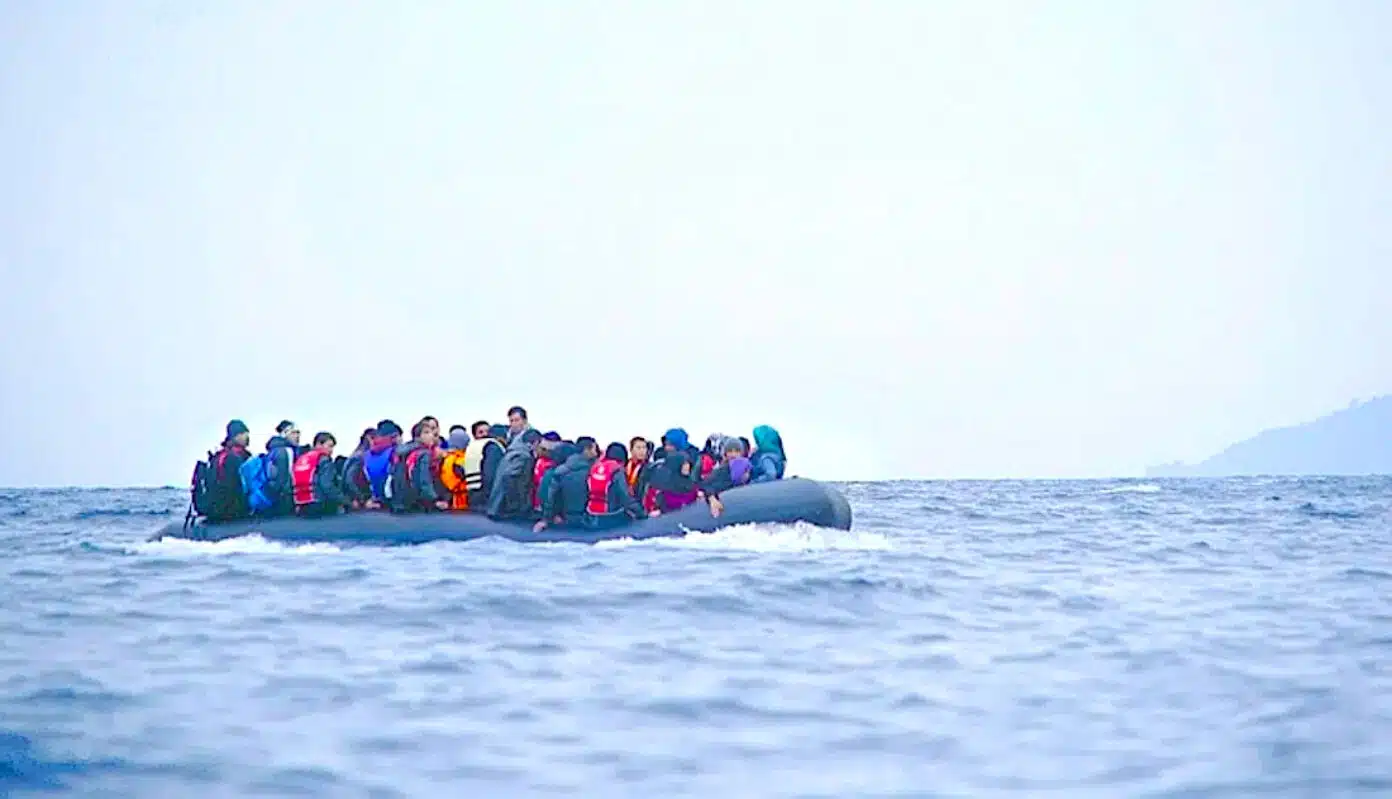By: Lefteris Papagiannakis | greekreporter.com | 11 July 2025
Greece’s Asylum Ban: ‘Violation of International Law and Political Responsibility’
Lefteris Papagiannakis, the Director of the Greek Council for Refugees, has blasted Greece’s government decision to impose a three-month ban on asylum applications for refugees arriving in Greece from Libya and North Africa.
Writing exclusively for Greek Reporter, Papagiannakis says that the new law voted on on Friday by the Greek Parliament constitutes a violation of international law and criticizes the government, saying it should have been better prepared to deal with the increase in the number of asylum seekers.
From the floor of the Hellenic Parliament, the Greek Prime Minister, Kyriakos Mitsotakis, recently announced a deeply controversial measure: the suspension of asylum for individuals arriving by sea from North Africa to the island of Crete. This suspension—intended to last three months—will be accompanied by the creation of two closed detention centers, where all new arrivals will be arrested and held.
This drastic shift echoes the government’s rhetoric during the Evros border crisis in March 2020, which it described as an “invasion.” The justification, once again, is the need for “emergency measures” in response to so-called “extraordinary conditions.”
Yet these measures represent a clear and dangerous violation of international law, including the 1951 Refugee Convention and core principles of EU law. The right to seek asylum is not optional. It cannot be paused or denied arbitrarily, even during times of increased migration.
Greece knew about an increase in asylum seeker numbers
What makes this situation particularly troubling is that the government cannot credibly claim to have been caught off guard. The increase in arrivals to Crete did not emerge suddenly. Discussions about rising migration to the island began as early as late 2023, when the numbers were still relatively small.
The trend continued into 2024 and spiked further in 2025. While the recent percentage increase may be steep, the absolute numbers do not justify panic, nor do they merit the escalation of policy into open legal defiance. In addition to that, we need to take into account that the number of arrivals in Greece is down compared to this time last year.
In 2015, Europe was indeed caught unprepared during the so-called refugee crisis, especially on the northern Aegean islands. But in 2025, Greece has over a decade of experience and an established asylum infrastructure.
The excuse of being unprepared no longer holds. The government knew, or should have known, what was coming—and it could have acted proactively. The choice to delay, to shift blame, or to respond with repression lies solely with the current administration.
This political decision comes in the wake of a diplomatic incident with Libya, where Field Marshal Khalifa Haftar expelled the EU Commissioner and the migration ministers of Greece, Italy, and Malta. Tensions in the region are rising, and migration is being increasingly weaponized in geopolitical games. However, scapegoating refugees and migrants for these tensions, or outsourcing border control to unstable regimes, is not only short-sighted—it is morally and legally indefensible.
The parallels to the 2016 EU-Turkey Statement are striking. That deal transformed the Aegean islands into de facto buffer zones, most notoriously with the establishment of the Moria camp on Lesvos. We may be witnessing the early stages of a similar arrangement with Libya—one that offers financial incentives to a militarized authority in exchange for taking on the role of Europe’s jailer. Whether Crete will play the same role as the Aegean islands remains unclear, but it is doubtful it can, or should, serve that purpose.
Greece’s government “bears full responsibility”
What is clear, however, is that the Greek government bears full political responsibility for the current situation. Whether it failed through inaction, miscalculation, or deliberate neglect—or whether this policy shift is a distraction from ongoing domestic scandals—the outcome is the same: a systemic failure in migration governance and a slide into authoritarian rhetoric.
Worse still, this rhetoric is increasingly toxic. By framing migration as a threat, by using the language of invasion and emergency, the government contributes to a climate of fear and racism that directly fuels the rise of the far right. This is not an unfortunate side effect—it is a predictable and politically convenient consequence.
In such a fragile and volatile context, the role of local government becomes crucial. While migration policy is shaped at national and international levels, the lived reality of migration is always local. Municipalities, especially in Crete, cannot remain passive observers. They must assert their agency and advocate for humane, legal, and rational responses.
Local authorities have a responsibility not only to manage the social and economic impact of migration but also to defend democratic values and social cohesion. They must push back against xenophobic narratives, support inclusive initiatives, and demand that the national government respect both the law and the dignity of those seeking safety.
There is still time to reverse course. Greece can draw on its considerable experience, its civil society networks, and its international partnerships to manage migration in a way that is effective, lawful, and humane. But this will require political courage, transparency, and above all, a rejection of short-term populism in favor of long-term policy thinking.
Emergency measures must not become the norm. Legal rights must not be suspended to appease nationalist sentiment. And human lives must never be reduced to instruments of political theater.
Read more >>>

